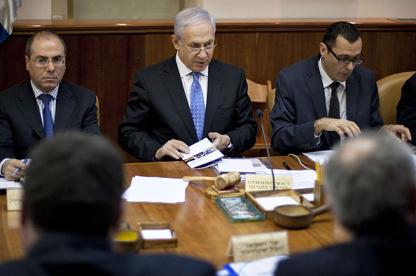The Zionist entity’s rightwing and center-left blocs have won an equal share of the 120-seat parliament, the Israeli Central Elections Committee said
The Zionist entity’s rightwing and center-left blocs have won an equal share of the 120-seat parliament, the Israeli Central Elections Committee said on Wednesday, with 99.5 percent of votes counted. 
The figures published on the committee's website early Wednesday showed the joint list fielded by Prime Minister Benjamin Netanyahu coming out ahead of its rivals in Tuesday's snap legislative elections, with 31 seats in total.
Netanyahu emerged from hard-fought elections weakened but still best placed to form a new government and likely to reach out to centrist parties strengthened by the vote. But with the parliament so divided, the parties of the center-left bloc could try to form a blocking front, refusing to join a coalition with Netanyahu.
But the success of various centrist, leftwing and Arab factions means the overall makeup of the parliament will be evenly split. Within the rightwing bloc, in addition to the 31 seats garnered by a list joining Netanyahu's Likud and the secular national Yisrael Beitenu, the religious “Jewish Home” won 11 seats, as did the Sephardic ultra-Orthodox Shas.
The Ashkenazi ultra-Orthodox United Torah Judaism faction won seven seats, bringing the bloc's total to 60.
On the center-left side, the centrist Yesh Atid -- the surprise success of the elections -- came away with 19 seats, slightly ahead of the centre-left Labour party, which won 15. The HaTnuah faction of former foreign minister Tzipi Livni carried six seats, as did the leftwing Meretz, while Livni's onetime party Kadima won just two.
Combined, the three Arab Israeli parties that crossed the electoral thresholds to make a showing in the parliament, won 12 seats, bringing the centre-left bloc to 60 seats in all.
The split paves the way for complex and delicate coalition negotiations, AFP analyzes.
